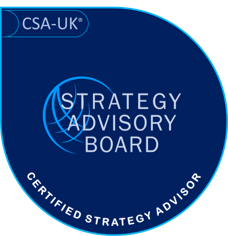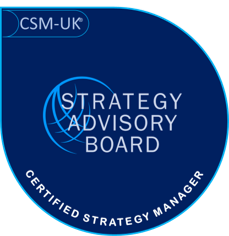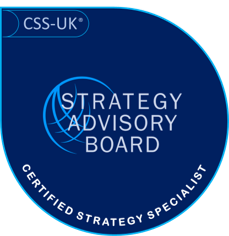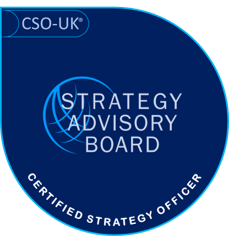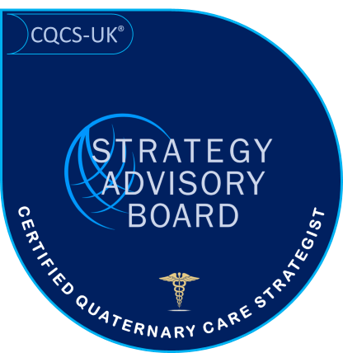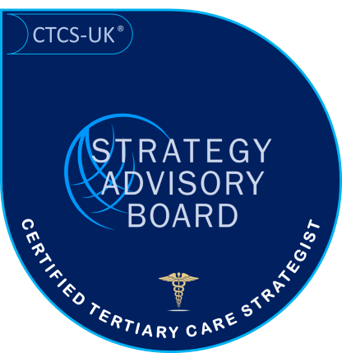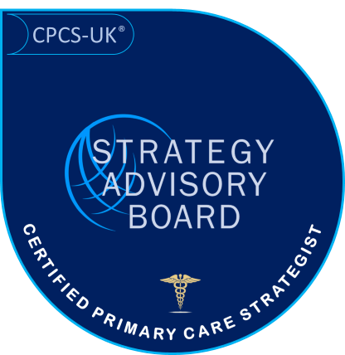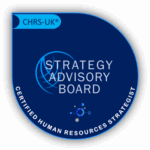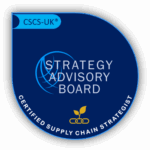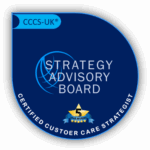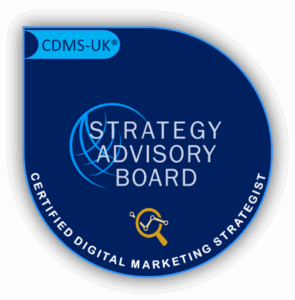WHAT IS CERTIFIED SECONDARY HEALTHCARE STRATEGIST “CSCS-UK” CERTIFICATION?
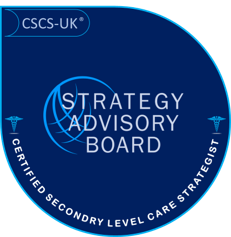
Enrollment Instructions
STEP 1: You MUST Register / Signup SIGNUP FIRST
STEP 2: Then click at the Certified Secondary Care Strategist add it in the cart & go through Payment Process (use Discount Coupon at the Checkout)
STEP 3: After the Payment Process your Enrollment would be Completed
STEP 4: Now is the Time to Deep-dive & Learn through Lessons, Appear & Pass Certification Exams (its mix of MCQs, T &Fs and Case Scenarios)
STEP 5: Go to Dashboard (Strategy Learners Profile) Click at Certificate
STEP 6: Copy the Link of your Digital Certificate that Validates your Qualification by your Employers
STEP 7: Scroll down the Certificate for Download through Small Arrow Button for Downloading
STEP 8: Share your Qualification on Twitter, Facebook, Linkedin & Instagram
STEP 9: Apply for Board Membership APPLY NOW
STEP 10: Start Receiving Strategy Management Assignments being Open to all Board Members.
STEP 11: Get Recognised as Practicing Strategist & Board Member Strategy Advisory Board
Upon completing the Certified Secondary Healthcare Strategist Course, participants will be able to:
- Understand Secondary Healthcare Concepts:
- Define and explain the principles and practices of secondary healthcare.
- Differentiate between primary, secondary, tertiary, and quaternary care, with a focus on the role and importance of secondary care in the healthcare system.
- Strategic Planning and Implementation:
- Develop and implement strategic plans tailored to secondary healthcare settings.
- Align secondary healthcare services with broader health system goals and community needs.
- Healthcare Management and Operations:
- Manage day-to-day operations of secondary healthcare facilities effectively.
- Optimize workflows, patient flow, and resource utilization to enhance efficiency and care delivery.
- Exhibit Leadership and Decision-Making Skills:
- Demonstrate strong leadership skills in secondary healthcare environments.
- Make informed, evidence-based decisions to improve patient care and organizational performance.
- Quality Improvement and Patient Safety:
- Design and implement quality improvement initiatives specific to secondary healthcare.
- Ensure high standards of patient safety and care quality through continuous improvement efforts.
- Financial Management:
- Manage financial resources, including budgeting, cost control, and financial planning in secondary healthcare settings.
- Understand and address the financial challenges unique to secondary healthcare.
- Regulatory and Ethical Compliance:
- Navigate the regulatory landscape governing secondary healthcare.
- Address ethical issues and dilemmas in secondary healthcare management, ensuring compliance with laws and standards.
- Healthcare Innovation and Technology:
- Promote and manage the integration of innovative technologies in secondary healthcare.
- Utilize health information systems and electronic health records (EHR) to enhance care delivery and decision-making.
- Community Engagement and Public Health:
- Engage with the community to understand and address local health needs.
- Implement public health initiatives and preventive care strategies to improve community health outcomes.
- Patient-Centered Care:
- Implement strategies to ensure patient-centered care in secondary healthcare settings.
- Address the unique needs and concerns of patients, fostering a culture of empathy and respect.
- Facilitate Effective Collaboration and Communication:
- Promote interdisciplinary collaboration and communication within secondary healthcare teams.
- Engage with stakeholders, including patients, families, healthcare professionals, and policymakers.
- Human Resource Management:
- Recruit, train, and retain skilled healthcare professionals in secondary care.
- Develop and implement staff training and development programs to enhance workforce competency.
- Data Analytics and Decision Support:
- Utilize healthcare data analytics to inform decision-making and improve care outcomes.
- Implement decision support systems to enhance clinical and operational performance.
- Supply Chain Management:
- Manage supply chains effectively to ensure the availability of essential medical supplies and equipment.
- Optimize procurement processes and inventory management.
The Certified Secondary Healthcare Strategist Course aims to provide participants with comprehensive knowledge and skills in secondary healthcare management, focusing on strategic planning, leadership, quality improvement, financial management, regulatory compliance, innovation, community engagement, and patient-centered care. These learning objectives ensure that graduates are well-equipped to lead and manage secondary healthcare facilities, ultimately enhancing the quality and accessibility of care in their communities.
Upon completing the Certified Secondary Healthcare Strategist Course, participants will be able to:
- Master Secondary Healthcare Concepts:
- Demonstrate a comprehensive understanding of secondary healthcare principles and practices.
- Clearly articulate the differences between primary, secondary, tertiary, and quaternary care, with a focus on the role and importance of secondary care in the healthcare system.
- Develop and Implement Strategic Plans:
- Create effective strategic plans tailored to secondary healthcare settings.
- Align secondary healthcare services with the overall goals of the healthcare system and community health needs.
- Efficiently Manage Healthcare Operations:
- Optimize the daily operations of secondary healthcare facilities.
- Enhance workflows, patient flow, and resource utilization to improve service delivery and patient outcomes.
- Exhibit Leadership and Decision-Making Skills:
- Apply strong leadership skills in managing secondary healthcare teams and operations.
- Make informed, evidence-based decisions that enhance patient care and organizational performance.
- Drive Quality Improvement and Ensure Patient Safety:
- Implement quality improvement initiatives tailored to secondary healthcare settings.
- Maintain high standards of patient safety and care quality through continuous monitoring and improvement efforts.
- Manage Financial Resources Effectively:
- Handle budgeting, cost control, and financial planning in secondary healthcare environments.
- Address financial challenges specific to secondary healthcare settings, ensuring financial stability and sustainability.
- Ensure Regulatory and Ethical Compliance:
- Navigate and comply with the regulatory landscape governing secondary healthcare.
- Address and manage ethical issues and dilemmas in secondary healthcare management.
- Promote Healthcare Innovation and Technology Integration:
- Manage the integration of innovative technologies in secondary healthcare.
- Utilize health information systems and electronic health records (EHR) to improve care delivery and decision-making.
- Engage with the Community and Address Public Health Needs:
- Engage effectively with the community to understand and address local health needs.
- Implement public health initiatives and preventive care strategies to improve overall community health.
- Deliver Patient-Centered Care:
- Implement strategies that ensure patient-centered care in secondary healthcare settings.
- Address the unique needs and concerns of patients, fostering a culture of empathy and respect.
- Facilitate Effective Collaboration and Communication:
- Promote interdisciplinary collaboration and communication within secondary healthcare teams.
- Engage with stakeholders, including patients, families, healthcare professionals, and policymakers.
- Manage Human Resources in Healthcare:
- Recruit, train, and retain skilled healthcare professionals in secondary care.
- Develop and implement staff training and development programs to enhance workforce competency and performance.
- Utilize Data Analytics for Informed Decision-Making:
- Apply healthcare data analytics to inform decisions and improve care outcomes.
- Implement decision support systems to enhance clinical and operational performance.
- Optimize Supply Chain Management:
- Manage supply chains effectively to ensure the availability of essential medical supplies and equipment.
- Optimize procurement processes and inventory management to support healthcare delivery.
The learning outcomes of the Certified Secondary Healthcare Strategist Course ensure that participants are equipped with the necessary skills and knowledge to assume advanced roles in secondary healthcare management and leadership. Graduates will be capable of implementing strategic plans, driving quality improvements, managing financial resources, ensuring regulatory compliance, integrating innovative technologies, engaging with the community, delivering patient-centered care, and fostering effective collaboration and communication within their teams. These competencies are essential for enhancing the quality, efficiency, and accessibility of secondary healthcare services, ultimately improving patient care and health outcomes.
The Certified Secondary Healthcare Strategist Course is designed for a diverse range of healthcare professionals and stakeholders who are involved in or aspire to take on leadership and strategic roles in secondary healthcare settings. The target audiences include:
- Healthcare Executives and Administrators:
- Chief Executive Officers (CEOs) and Chief Operating Officers (COOs): Individuals in senior leadership positions within healthcare organizations overseeing secondary care services.
- Hospital and Clinic Administrators: Professionals responsible for the strategic planning and management of secondary healthcare facilities.
- Clinical Leaders and Medical Directors:
- Medical Directors: Physicians and clinical leaders managing secondary care departments or units.
- Clinical Managers and Supervisors: Healthcare professionals overseeing clinical operations in secondary healthcare settings.
- Secondary Care Physicians and Nurses:
- Specialist Physicians: Cardiologists, oncologists, surgeons, and other specialists working in secondary care environments.
- Nurse Practitioners, Clinical Nurse Specialists, and Registered Nurses: Nursing professionals providing specialized care in secondary healthcare settings.
- Quality Improvement and Patient Safety Officers:
- Directors of Quality Improvement: Professionals focused on enhancing care quality and patient outcomes in secondary healthcare settings.
- Patient Safety Officers: Individuals responsible for implementing and monitoring patient safety protocols.
- Healthcare Financial Managers:
- Chief Financial Officers (CFOs): Financial professionals overseeing budgeting, cost control, and financial planning in secondary healthcare facilities.
- Directors of Finance: Professionals managing financial activities and addressing financial challenges in secondary care.
- Regulatory Compliance Officers:
- Regulatory Affairs Directors: Professionals ensuring that secondary healthcare facilities adhere to regulatory standards and ethical practices.
- Compliance Officers: Individuals overseeing adherence to regulatory requirements and maintaining ethical standards in healthcare practice.
- Healthcare Strategists and Planners:
- Healthcare Strategists: Individuals involved in developing and implementing strategic plans for secondary healthcare organizations.
- Healthcare Consultants: Professionals providing strategic advice to secondary care facilities.
- Public Health Officials and Community Health Workers:
- Public Health Professionals: Individuals working to improve community health through secondary care services.
- Community Health Workers and Advocates: Professionals engaged in public health initiatives and preventive care strategies.
- Healthcare Innovators and IT Professionals:
- Directors of Innovation: Professionals leading initiatives to incorporate new technologies and practices into secondary healthcare.
- IT Professionals: Individuals involved in integrating and managing health information systems and electronic health records (EHR) in secondary care.
- Educators and Trainers:
- Healthcare Educators: Professionals developing and delivering educational programs and training for secondary care staff.
- Directors of Training and Development: Leaders of training initiatives to enhance the skills and knowledge of healthcare staff.
- Policy Makers and Healthcare Advocates:
- Healthcare Policy Advisors: Professionals advising on healthcare policies and regulations affecting secondary care.
- Health Advocates: Individuals working to improve access to and quality of secondary healthcare services.
- Human Resource Managers:
- Directors of Human Resources: Professionals overseeing recruitment, training, and retention of secondary care staff.
- Workforce Development Officers: Individuals focused on enhancing the skills and competencies of the healthcare workforce.
Conclusion
The Certified Secondary Healthcare Strategist Course is designed to equip a wide range of healthcare professionals with the skills and knowledge necessary to lead and manage secondary healthcare services effectively. By targeting executives, administrators, clinical leaders, quality improvement officers, financial managers, compliance officers, strategists, public health officials, innovators, educators, policymakers, and human resource managers, the course aims to enhance the quality, efficiency, and accessibility of secondary healthcare services.
Completing a Certified Secondary Healthcare Strategist Course can open up a variety of advanced career opportunities in the healthcare sector. Here are some potential career growth paths:
- Healthcare Executive Roles:
- Chief Executive Officer (CEO): Overseeing the entire operations of a secondary healthcare organization.
- Chief Operating Officer (COO): Managing the day-to-day administrative and operational functions of healthcare facilities.
- Vice President of Operations: Leading operational strategies and processes in secondary healthcare institutions.
- Clinical Leadership Positions:
- Medical Director: Leading clinical departments and ensuring high standards of patient care in secondary healthcare settings.
- Director of Specialty Care Services: Overseeing the delivery of specialized healthcare services and managing clinical staff.
- Chief Medical Officer (CMO): Providing medical oversight and leadership across all clinical areas of secondary care.
- Administrative Leadership:
- Hospital Administrator: Managing hospital operations, including planning, organizing, and supervising resources and staff.
- Clinic Manager: Leading the operations of outpatient clinics, focusing on efficiency and quality of care.
- Director of Patient Services: Ensuring high-quality patient care and satisfaction within secondary healthcare facilities.
- Quality and Patient Safety:
- Director of Quality Improvement: Leading efforts to improve care quality and patient outcomes in secondary healthcare settings.
- Patient Safety Officer: Implementing and monitoring patient safety protocols to reduce medical errors and enhance care quality.
- Quality Assurance Manager: Overseeing quality control processes and ensuring compliance with healthcare standards.
- Strategic Planning and Innovation:
- Healthcare Strategist: Developing and executing strategic plans to improve secondary healthcare delivery and services.
- Director of Innovation: Leading initiatives to incorporate new technologies and practices into secondary healthcare.
- Strategic Planning Manager: Coordinating strategic planning processes and aligning them with organizational goals.
- Financial Management:
- Chief Financial Officer (CFO): Overseeing the financial operations of secondary healthcare organizations, including budgeting and financial planning.
- Director of Finance: Managing financial activities, ensuring financial health, and addressing financial challenges in secondary care.
- Healthcare Financial Analyst: Analyzing financial data to support decision-making and improve financial performance.
- Regulatory and Compliance:
- Regulatory Affairs Director: Ensuring compliance with healthcare laws and regulations, managing audits, and addressing ethical concerns.
- Compliance Officer: Overseeing adherence to regulatory requirements and maintaining ethical standards in healthcare practice.
- Risk Manager: Identifying and mitigating risks within secondary healthcare settings.
- Education and Training:
- Healthcare Educator: Developing and delivering educational programs and training for secondary care professionals.
- Director of Training and Development: Leading training initiatives to enhance the skills and knowledge of healthcare staff.
- Clinical Trainer: Providing specialized training for clinical staff to improve their competencies.
- Research and Development:
- Director of Research: Leading research initiatives to advance secondary healthcare practices and improve patient care.
- Clinical Research Manager: Overseeing clinical trials and research projects aimed at advancing secondary care.
- Health Services Researcher: Conducting studies to evaluate and improve healthcare services and outcomes.
- Policy and Advocacy:
- Healthcare Policy Advisor: Advising on healthcare policies and regulations to improve secondary care services.
- Health Advocate: Working with organizations to advocate for policies that enhance secondary healthcare.
- Public Health Policy Analyst: Analyzing policies and their impact on secondary healthcare services.
- Consulting:
- Healthcare Consultant: Providing expert advice to secondary healthcare organizations on improving operations and implementing best practices.
- Management Consultant: Assisting healthcare facilities in optimizing management processes and achieving strategic goals.
- Operational Consultant: Offering solutions to enhance operational efficiency and effectiveness in secondary care settings.
- Human Resource Management:
- Director of Human Resources: Overseeing recruitment, training, and retention of secondary care staff.
- Workforce Development Manager: Focusing on enhancing the skills and competencies of the healthcare workforce.
- Talent Acquisition Specialist: Recruiting skilled healthcare professionals for secondary care roles.
- Community Health Roles:
- Public Health Officer: Developing and implementing public health initiatives to improve community health outcomes.
- Community Health Program Director: Leading programs that address local health needs and improve access to secondary care services.
- Health Promotion Manager: Designing and implementing health promotion and disease prevention programs.
A Certified Secondary Healthcare Strategist Course equips professionals with the knowledge and skills necessary to assume advanced roles in secondary healthcare management and leadership. Career growth opportunities are abundant, spanning executive and clinical leadership, quality improvement, financial management, regulatory compliance, innovation, education, research, policy, consulting, human resources, and community health. These roles are essential for enhancing the quality, efficiency, and accessibility of secondary healthcare services, ultimately improving patient care and health outcomes.
Curriculum
- 6 Sections
- 15 Lessons
- Lifetime
- Module 1: Healthcare Strategy in Secondary Settings3
- Module 2: Financial Management in Secondary Healthcare3
- Module 3: Regulatory Compliance and Quality Assurance3
- Module 4: Leadership and Team Dynamics3
- Module 5: Strategic Healthcare Management5
- 5.1Development of actionable recommendations for improving secondary healthcare operations
- 5.2Integration of learning through a strategic healthcare project
- 5.3Development of strategic insights and outcomes in secondary healthcare management
- 5.4Final Exam10 Minutes0 Questions
- 5.5CSCS Final Exam2 Hours25 Questions
- Final Exam to be CSCS-UK1






